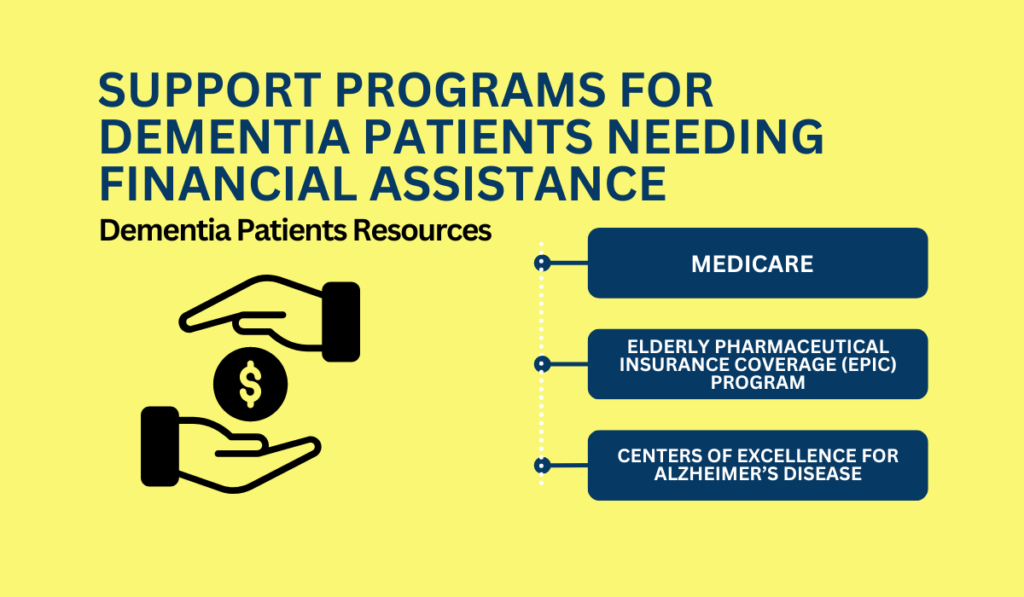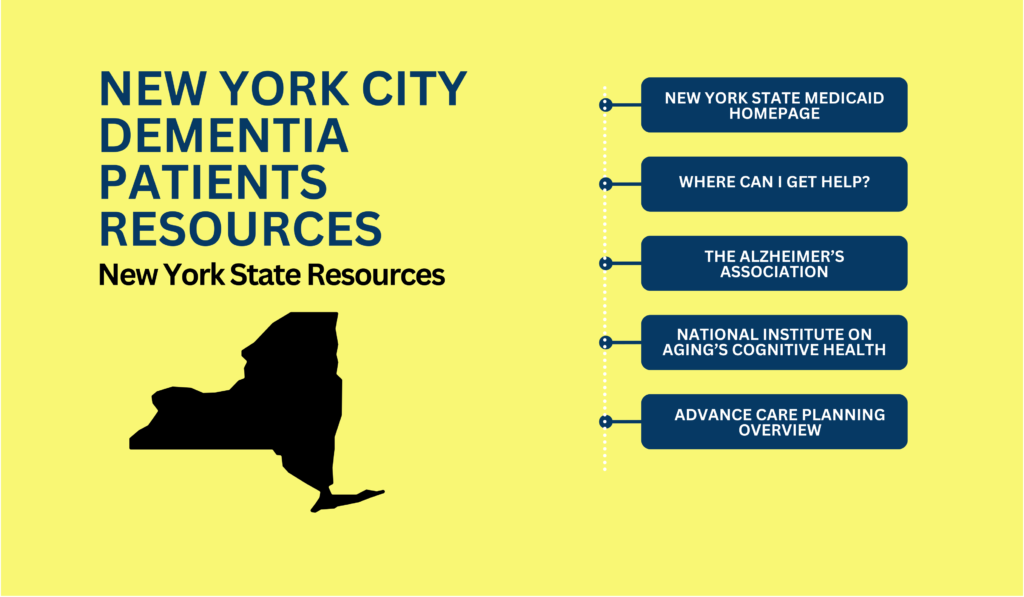For millions of Americans, Medicaid coverage is the catalyst that makes accessing health services possible and simple. However, despite its perks, Medicaid isn’t an option for everyone, nor is it always easy to understand.
If you or a loved one has been diagnosed with dementia of any kind, you might understandably worry about how you’ll manage the costs that accompany the level of care you need. If you qualify for Medicaid, you’ll probably find that at least some of your medical expenses will be covered.
Let’s break down how you can determine whether New York Medicaid covers the dementia care services you’re interested in pursuing.
Key Takeaways
- Essential healthcare services like doctor’s visits, medications, and medical equipment should be covered by Medicaid.
- If you’re not eligible for Medicaid coverage, you may still be able to get financial support for dementia from other programs, like Medicare.
- In-home care services led by an experienced caregiver can still help a dementia patient meet their needs and ensure that care falls under the umbrella of services covered by Medicaid.
- You can learn more about covered services and other options for support by consulting the New York Department of Health.
Does Medicaid Cover Dementia in New York?
In New York, Medicaid typically covers the cost of dementia care services included in the scope of long-term care. In other words, dementia care that’s provided in a long-term care setting, such as a nursing home or memory care facility, is usually covered by Medicaid.
However, Medicaid may not cover other costs that might inevitably come with seeking dementia treatment, like room and board in a care facility.
Generally speaking, New York Medicaid benefits cover nearly all essential healthcare services, including doctor visits, medical supplies and equipment, prescriptions, and more. For most people, elements of dementia care programs fall into one or more of the categories these benefits cover.
So, even if you or a loved one doesn’t live in a nursing home or similar facility, they may still be able to receive coverage for many or all of their dementia-related care needs.
What does this mean for you? If you or your loved one already receive New York Medicaid benefits, you should be able to apply them to memory care services such as:
- In-home supervision or nursing care
- Support with activities of daily living
- Mobility assistance devices like wheelchairs, scooters, etc.
- Occupational or speech therapies
If you do not currently receive benefits but would like to use Medicaid to help cover the costs of dementia care, your first step is to check your eligibility and go through the application process.
You can visit the New York Medicaid Marketplace to see if your income and circumstances qualify you for coverage. From there, follow the application instructions to get started.
Interested in learning more about Medicaid programs? Gain insights from these statistics about Medicaid in New York and across the U.S.
Support Programs for Dementia Patients Needing Financial Assistance

Many dementia patients in New York can count on Medicaid to cover part or nearly all of the services they need. However, not everyone is eligible for Medicaid coverage — and even if you are, you might find that Medicaid services won’t include the options you’re interested in.
Fortunately, there are other options out there that can help low-income patients looking for extra financial support.
- Medicare: Even if you’re not eligible for Medicaid, you might still be able to benefit from Medicare. Though they both have income limits and similar names, Medicaid and Medicare are not the same thing. While Medicaid is managed by each state, Medicare is a federal health insurance program designed for people 65 or older. If you qualify for coverage, Medicare may be able to help you cover costs associated with dementia care.
- Elderly Pharmaceutical Insurance Coverage (EPIC) Program: The EPIC program is a state program hosted by the Department of Health. The program helps eligible adults aged 65 and older pay for necessary medications by supplementing their out-of-pocket Medicare Part D plan costs. Dementia patients who take medications and receive Medicare coverage may get additional support from this option.
- Centers of Excellence for Alzheimer’s Disease: Throughout New York, there are ten Centers of Excellence for Alzheimer’s Disease, each of which can help provide comprehensive medical services for the diagnosis and treatment of various types of dementia. The Centers can also refer patients, caregivers, and family members to community-based support services that suit their needs (and financial limitations).
Other Long-Term Care Options in New York
Even if you can’t successfully find “formal” dementia care options that you can afford, there are other ways to make the support you need accessible. Nursing home facilities might be some of the most common providers of dementia treatment. Still, other long-term care options like those below can be hubs for care covered by Medicaid — or, at the very least, that’s more flexible.
- Assisted Living Facilities: Sometimes seen as a “step down” from a nursing home, assisted living communities still house residents who cannot or do not want to live independently. However, unlike a nursing facility, these care options usually don’t offer round-the-clock supervision.
- Managed Long-Term Care (MLTC): MLTC aims to bring long-term services to patients with chronic health needs who want to stay in their homes rather than an outside facility. Adult daycare is just one example of an MLTC option that can help dementia patients. No matter what, though, managed long-term care plans must be approved by the New York Department of Health.
- In-Home Care Services: Another option for those who want to stay at home is — perhaps unsurprisingly — home care services. A caregiver or healthcare provider visits a patient’s home to monitor and support their needs. These caregivers can be trained professionals, or they can be “informal” or family caregivers who receive compensation through the CDPAP.
Resources for Dementia Patients in New York City

Clearly, there are many things to consider when pursuing dementia care in New York. But you don’t have to navigate your questions or concerns by yourself. Below are some additional resources that can help you learn more about dementia care, Medicaid coverage, and how to access the services you or a loved one might need.
- New York State Medicaid Homepage: Here, you can learn more about Medicaid eligibility and explore what Medicaid might cover for you.
- Where Can I Get Help?: This guide from the New York Department of Health lists several resources you can use to find support, financial or otherwise, throughout the state.
- The Alzheimer’s Association, New York City Chapter: This branch of the Alzheimer’s Association provides peer support, education, and services for dementia patients, caregivers, and their families. It’s also a great place to turn for more information about Alzheimer’s disease and other forms of dementia.
- National Institute on Aging’s Cognitive Health in Older Adults: This guide breaks down all a dementia patient or their caregiver may need to know to promote good health and wellness. It also discusses changes caused by dementia and how you can support a loved one experiencing them.
- Advance Care Planning Overview: This page, also from the New York Department of Health, contains links to important documents and key pieces of information for those living with dementia. Planning ahead can help patients ensure their needs and wishes are met as they progress through various stages of dementia.
Navigating dementia can already be challenging enough on its own. You deserve support options that work for you and give you access to the services you need. If you’re still not sure how you can find financial assistance, it may be best to consult your or your loved one’s healthcare provider to discuss your next steps.